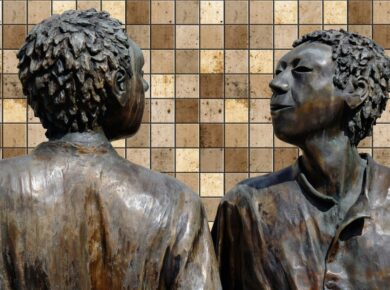In a democratic society like India, the protection of individual liberties is paramount. Among these fundamental freedoms enshrined in the Constitution, the right to refuse holds a significant place. Rooted in principles of autonomy, dignity, and personal choice, the right to refuse empowers citizens to make decisions about their own lives and bodies without undue interference. Understanding this right within the context of the Indian Constitution is crucial for upholding the values of democracy and individual sovereignty.
Constitutional Foundations
The right to refuse finds expression in various provisions of the Indian Constitution, primarily within the framework of fundamental rights and principles of justice, liberty, and equality. While the Constitution does not explicitly mention the “right to refuse”, it is implicit in several fundamental rights, particularly:
Article 21: Right to Life and Personal Liberty
Article 21 of the Indian Constitution guarantees the right to life and personal liberty, which has been interpreted expansively by the judiciary to include the right to autonomy and bodily integrity. This implies that individuals have the freedom to make choices regarding their own lives, bodies, and actions, including the right to refuse unwanted medical treatment or intervention.
Article 19: Right to Freedom
Article 19 of the Constitution protects various freedoms, including the right to freedom of speech and expression, assembly, association, movement, and occupation. These freedoms encompass the right to refuse participation in activities or associations that one does not consent to, whether in the context of employment, political affiliations, or other engagements.

Applications in Various Contexts
Medical Treatment
In the realm of healthcare, the right to refuse plays a significant role. Indian courts have consistently upheld the principle of informed consent, affirming the right of patients to refuse medical treatment or interventions, even if recommended by healthcare professionals. This includes the right to refuse life-saving treatments, provided the patient is deemed competent to make such decisions.
Employment
The right to refuse also extends to the workplace, where employees have the freedom to decline participation in tasks or assignments that they believe are unsafe, unethical, or unlawful. While employers retain certain prerogatives to manage their operations, they must respect the rights of employees and provide reasonable accommodations where necessary.
Government Actions
Citizens have the right to refuse compliance with government actions or mandates that they deem unjust or unconstitutional. This may include peaceful protests, civil disobedience, or legal challenges to laws or policies that infringe upon their rights or freedoms. The right to refuse serves as a check on government power and ensures accountability to the principles of democracy and rule of law.
Limitations and Challenges
While the right to refuse is fundamental, it is not absolute and may be subject to certain limitations, particularly when it conflicts with other rights or public interests. For instance, the refusal of certain medical treatments during public health emergencies may pose risks to public health and safety, necessitating intervention or regulation by the state.
Conclusion
The right to refuse is a cornerstone of individual liberty and autonomy under the Indian Constitution. Rooted in principles of dignity, choice, and self-determination, it empowers citizens to assert control over their own lives and bodies. Upholding this right requires a delicate balance between individual freedoms and societal interests, ensuring that democratic principles and constitutional values are upheld in all spheres of life. By recognizing and protecting the right to refuse, India reaffirms its commitment to promoting justice, liberty, and equality for all its citizens.















